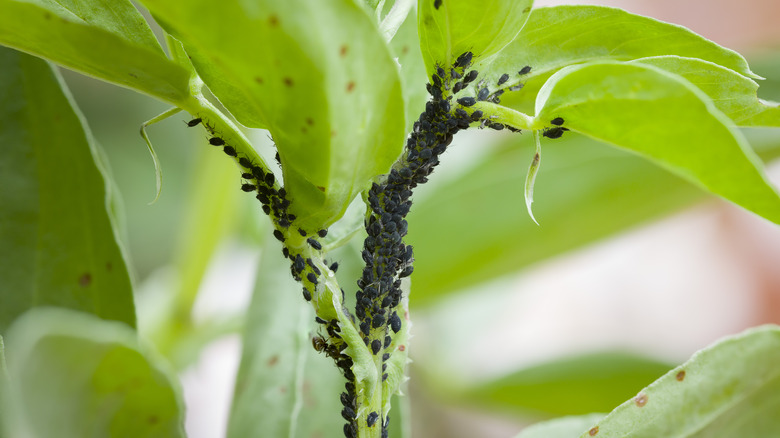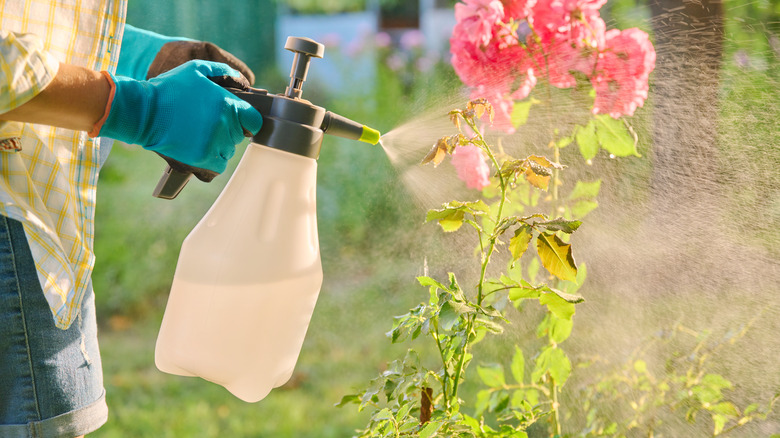Say Goodbye To Aphids With A Common Spice You Have Already
One of the most important factors in having a successful garden is pest management, especially because most pests from easy-to-see Japanese beetles to tiny aphids can wreak havoc on your vegetable harvest. Aphids are particularly annoying because it is often difficult to tell that you have an aphid problem until it's too late, and these tiny insects can cause plenty of damage — from wilting young plants to spreading plant diseases and fungi. Luckily, there's one common ingredient that is probably already in your kitchen that can keep aphids off your vegetables for good: cinnamon.
In fact, this warm and flavorful spice has many uses in the garden from repelling pesky snakes to benefitting the color of your grass. This is because cinnamon not only has antimicrobial properties but is also a proven and effective natural pesticide that is often recommended for organic farming. Cinnamon oil can not only kill aphids and other insects on contact but can also drive them away with its strong aromatic qualities. However, just putting a bunch of cinnamon sticks around your garden or sprinkling cinnamon powder onto your soil probably won't do the trick. So, how can you use cinnamon in your garden to get all those irritating aphids to pack their bags?
How to use cinnamon to get rid of aphids for good
When it comes to using cinnamon as an insecticide in your garden, there are two methods. The first is to make a liquid solution using the powdered spice. You can do this by mixing two teaspoons of powdered cinnamon in four cups of warm water. Then, let the mixture soak overnight and strain before pouring into a spray bottle and coating the top and bottoms of the leaves of any aphid-affected plants. To help the mixture stick better to your plants, you can also add a few drops of rubbing alcohol and dish soap.
Another option is to use cinnamon oil. This is often recommended because cinnamon oil has a stronger fragrance than the dried spice. However, when using cinnamon oil, it is important to purchase the 100% pure version so that you aren't adding unknown chemicals to your garden. Once you have your cinnamon oil, go ahead and combine a mixture of 1% essential oil with 99% water (but be careful because any higher percentage of pure cinnamon oil may damage your plants). Then, use a sprayer to coat your garden plants completely in the mixture. For both methods, you will need to reapply the cinnamon mixture once every two weeks or after each rainfall.

